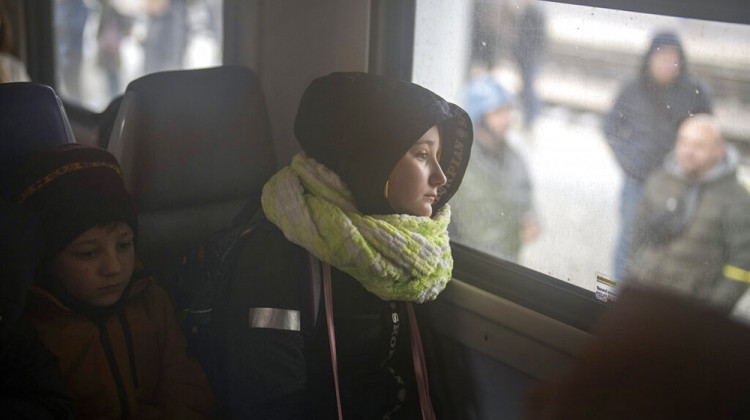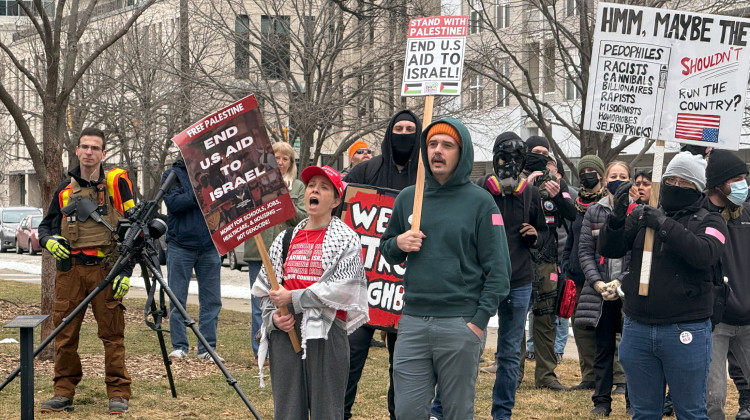
A girl and her brother sit on a train bound for Lviv at the Kyiv station, Ukraine, Thursday, March 3, 2022.
AP Photo/Emilio MorenattiThe news of war in Ukraine is reaching Hoosier children. Young people are curious and parents and trusted adults should be prepared to answer questions and address concerns.
In a recent column, Indiana Youth Institute President and CEO Tami Silverman said our children are connected and parents should encourage curiosity.
“Whether you have the news on at your home a lot or a little bit, you have to assume your child is getting media from lots of different sources,” Silverman said.
Information about the conflict and the millions of people displaced by the fighting is being displayed on social media and other platforms in new ways. That makes news direct from the front lines easily accessible. Silverman said it’s important to present facts and respond honestly.
“We’re looking at children and people being forced to flee at a moment's notice,” Silverman said. “We want to remind our kids that everyone, whether it’s this conflict or prior ones, everyone deserves to feel safe.”
Silveman said pointing out the helpers and finding ways to help can give children hope.
UNICEF published tips on talking to children about conflict and war, including:
- Find out what they know and how they feel. Pick a time and setting that is most comfortable for each child. Listen to the information they have and be prepared to correct inaccuracies or misinformation.
- Validate their feelings, seeking to understand the root of their concerns or desires to act.
- Keep it calm and age appropriate. Adjust your language to the age of the child, responding to questions and concerns with direct, fact-based information. It can be very helpful to remind children and youth that there are many adults working on solving the conflict.
- Spread compassion, not stigma. Conflict can often bring with it prejudice and discrimination, whether against people or a country. Remind children and youth that everyone deserves to feel safe. Use discussions to build compassion for those forced to flee, reminding kids that refugees are all humans deserving of care and compassion.
- Focus on the helpers. Share stories of courage, kindness, and demonstrations of support. Anticipate that taking action appeals to many kids. You can be prepared to respond by looking for options that may fit your child’s level of interest.
- Close conversations with care and continue to check in. Intentionally and periodically remind the young person that you are available to hold additional conversations whenever they feel one is needed.
- Limit the flood of news. For younger children, limit their exposure to the endless news cycle. For middle and high schoolers, this is another opportunity to talk about trusted news sources.
 DONATE
DONATE







 Support WFYI. We can't do it without you.
Support WFYI. We can't do it without you.